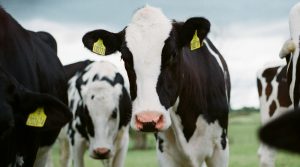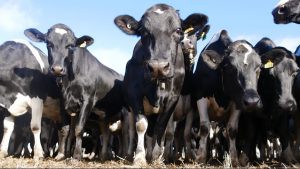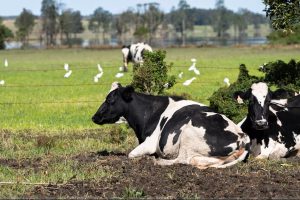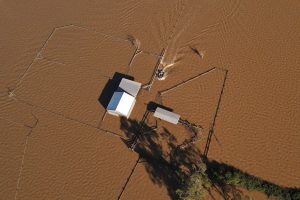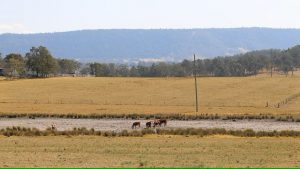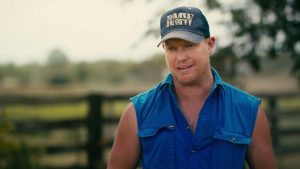
Key points:
- Several warnings remain in place for low-lying land around the Murray River
- Some farmers have been forced to move cattle and stock to higher ground or alternate locations
- Talking to friends and and community helps with processing a stressful experience
Les Bennett is a dairy farmer who tends to a little over 140 cows on his property just south of Kerang.
When the deluge of rain saw local rivers start to rise, he became nervous.
In a matter of minutes, nine trucks full of cows, calves, chickens and work dogs hit the road as he tried to beat the flood-related road closures.
A couple of bags of clothes and some food were thrown in the back of the farm ute, and off he went.
“You’d have thought I’d slept well that night, but I didn’t,” Mr Bennett said.
“I didn’t sleep well for a couple of nights”.

Mates to the rescue
Mr Bennett got straight to work trying to get his stock acclimatised to their new surroundings on a dairy at a mate’s farm near Koondrook.
That farm wasn’t immune to danger, though, with submerged parts of the nearby town of Barham a threatening reminder of what waited for him back home.
Mr Bennett knows that he’s lucky to have friends like Robbie Solder.
The fellow farmer happily came to his aide.
“He took us in, he came and helped,” Mr Bennett said through tears.
“He bought hay for our herd.
“It’s not something you want to go through too often.”
It’s the second time Mr Bennett’s been forced to move his herd in 11 years.
“I’m a farmer and I can’t believe I’m saying this, but we probably need it to stop raining for a while,” he said.

There are many parts of Les Bennett’s farm that he simply cannot reach due to floodwater.(Supplied: Les Bennett)
Impact on routines key
Experts are warning that the lingering trail of destruction fed by natural disasters could be compounded by the ongoing impact of the pandemic.
A clinical psychologist, Rob Gordon has worked in the field of disaster recovery since Ash Wednesday in 1983.
He said the psychological impact of people needing to move away from home cannot be understated.
“It’s only in a disaster that we begin to understand how important having the stable routine of ordinary life is for emotional stability,” Dr Gordon said.
“It’s very easy, then, to feel completely overwhelmed. And that’s when people start to despair.”
Dr Gordon said the lingering impact of people becoming disconnected from their community during the pandemic could influence the way they dealt with the latest disaster.
“The effect of COVID lockdowns was to prevent communities coming together and talking through their experience,” Dr Gordon said.
“Most people work their experience through by talking to friends and neighbours.
“When we feel part of a group, it’s the group that’s shouldering the problem.”

Feels like home
Mr Bennett’s cows are slowly becoming accustomed to their new dairy, which is one less stress for the farmer and his family.
But until the floodwater subsides, he’s unable to return to his farm.
It’s a lingering stress.
“I’m a farmer, that’s our living,” he said.
“That’s what you live for, to care for your livestock.”
Mr Bennett knows it may be some time until he can return home.
Until then, Mr Bennett will rely on the support of his mates and his farming community.
He just hopes that everyone else can face the devastation of floods with the kind of support that he’s had.
“When we do go home and get things going again, well, things will be fine,” Mr Bennett said.
“I’m lucky I’ve got good friends.”




